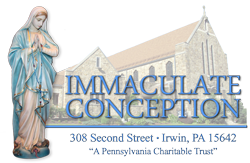Date: June 14, 2020 (Ordinary Time)
Bible Text: | Fr. Roniel Duenas
Series: Scripture Reflections
We just celebrated the feast of St. Anthony of Padua this morning’s/yesterday’s liturgy. It was told that St. Anthony on one occasion was carrying the blessed sacrament through a town in a monstrance. Everyone showed deep respect except for one man. He scoffed, not because he did not believe in God, but because he thought the host was just a sign, a symbol of Jesus. When the procession was over, St. Anthony challenged him. “Even a dumb animal knows better than you,” he said to the skeptic. The scoffer laughed all the more. So, the next time they had a procession, Anthony called for someone to bring forward a hungry donkey. On one side they set some hay. But instead of going for the hay, the donkey inclined for his head to the Eucharist. The skeptic’s face turned red. He did not need to be reminded of what the saint had previously told him.
Today we are celebrating the Solemnity of the Corpus Christi. We believe and we profess that the bread and wine, on the very moment of consecration at mass, is transformed into the body and blood, Soul and Divinity of our Lord Jesus Christ, by the power of the same Holy Spirit who gave us spiritual rebirth during our baptism. As there is in our baptism a supernatural transformation of our identity from being children of the flesh to being citizens of heaven, born again in the spirit so there is also transubstantiation. This reality means that even though the appearances remain to our senses - taste, smell, touch, look of bread - the very substance changes. The substance of the bread becomes the Body of Christ, His Real Presence, as Jesus declares, “This is my Body.”
To assent to this mystery is an act of faith. The only evidence and assurance we can hold on to is the fact that Jesus himself said: “I am the living bread that came down from heaven whoever eats this bread will live forever; and the bread that I will give you is my flesh for the life of the world.” Jesus knew that saying this will confuse and upset his disciples. We can notice their reactions and disbelief: “How can this man give us his flesh to eat?” It’s almost like saying: “this is pure stupidity.” But the Lord did not concede, in fact he said it again with a stronger emphasis: “Amen, amen I say to you, unless you eat the flesh of the Son of Man and drink his blood, you do not have life within you.” Jesus meant it and He would finally reveal how is this going to happen at the last supper, the first celebration of the Sacred Mass in the upper room with his disciples on the night before his bloody sacrifice on the cross. He gave the Eucharist to us to be celebrated for all generations in remembrance of Him.
But why would Jesus leave us this memorial? Well, because it accomplishes His plan to make His presence ever felt. But most importantly because God knows we need Him so bad. We need His presence.
In the story of the Road to Emmaus, the two disciples pleaded: "Stay with us, Lord, for it is almost evening" (Luke 24:29). This was their insistent invitation and in reality, this expresses the inherent desire of every human soul. We want to remain in the presence of God--to be united with Him.
And the Lord never fails to take heed of this our longing. He not only comes to us but also stays with us through the Eucharist. God continues to be incarnated; living with us, enshrined in the tabernacle, tangible and held by our hands at the Holy Communion. We want His presence always felt in a manner that we human beings naturally want to perceive things; hence he appears to us in the form of the Blessed Sacrament which we behold, adore, and worship.
Among the many forms and appearances, the Lord chose to appear to us as bread and wine. Bread or food is the basic necessity to survive. Without food, we eventually die. But among others, the flesh and blood of Jesus is totally different and unique. He is the only food that the world cannot produce. His is the bread that came down from heaven and takes us to heaven. The food of this world can only sustain us to a certain point of time, but the Bread from heaven takes us to eternity. And why the wine? The Jewish culture prohibits eating blood for no other reason but as stated in Deuteronomy 12:23-24 Only be certain that you do not eat the blood, for the blood is life; hence eating blood is tantamount to eating life. And Jesus wants to tell us that by drinking his life-giving blood we will be cleansed and forgiven of our sins. We will be saved from the curse of death. Furthermore, the wine reminds us of the fulness of joy in the eternal wedding feast of the Lamb. If we receive his body and blood, we will live, we will truly and fully live. How wonderful; how lovely. Let us thank and adore God, His goodness stands firm forever!
St. Augustine said, "No one eats this flesh unless he first adores it." May this our celebration today bring us closer to the Eucharist and grow in us an ever-deepening devotion to this remembrance of love.
Finally, let us be reminded that whenever we receive the Real Presence of Christ at the Holy Communion, we are Christified. As it is said: “We become what we eat.” Let us therefore become Christ to others - loving and life-giving.

